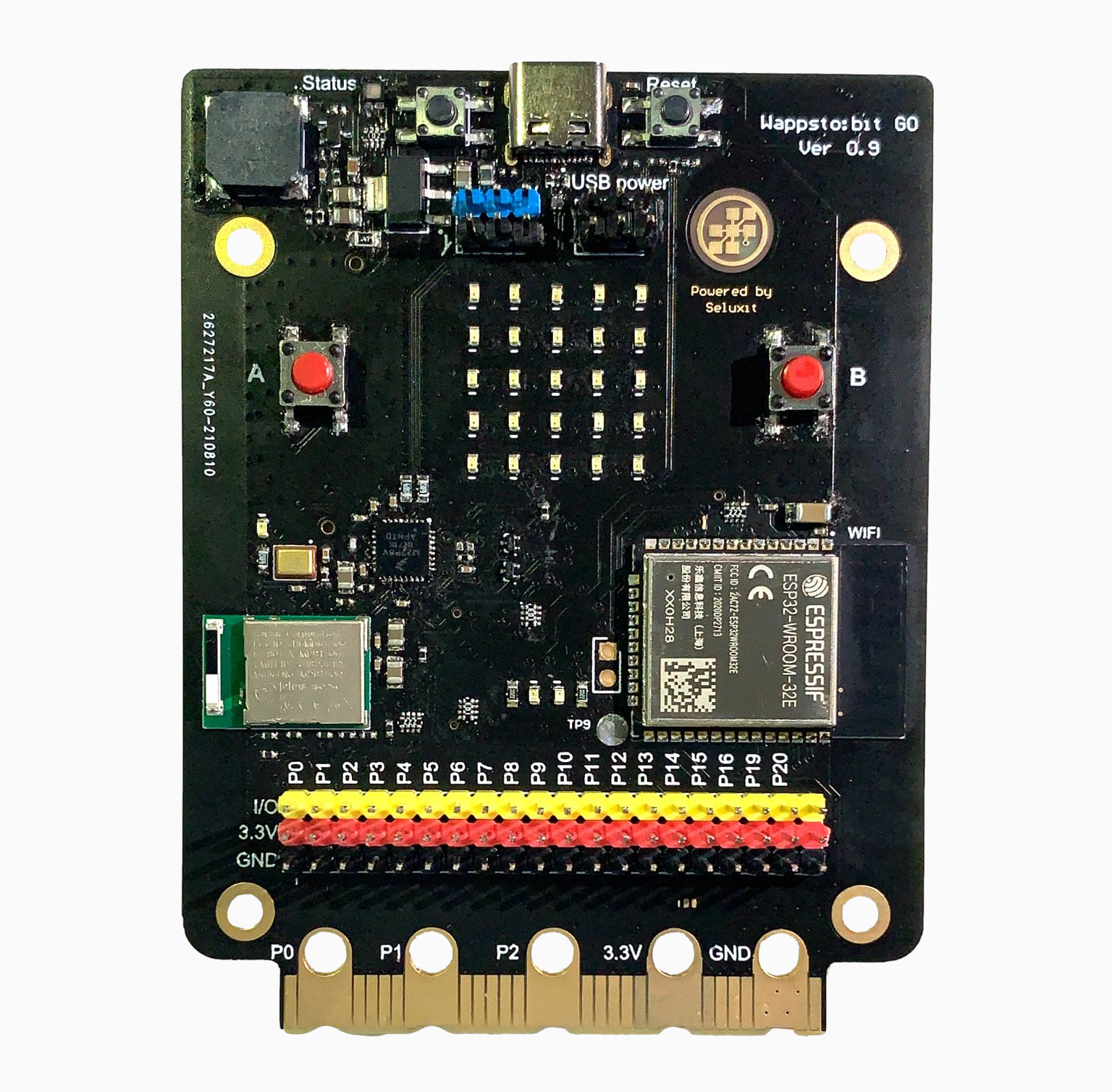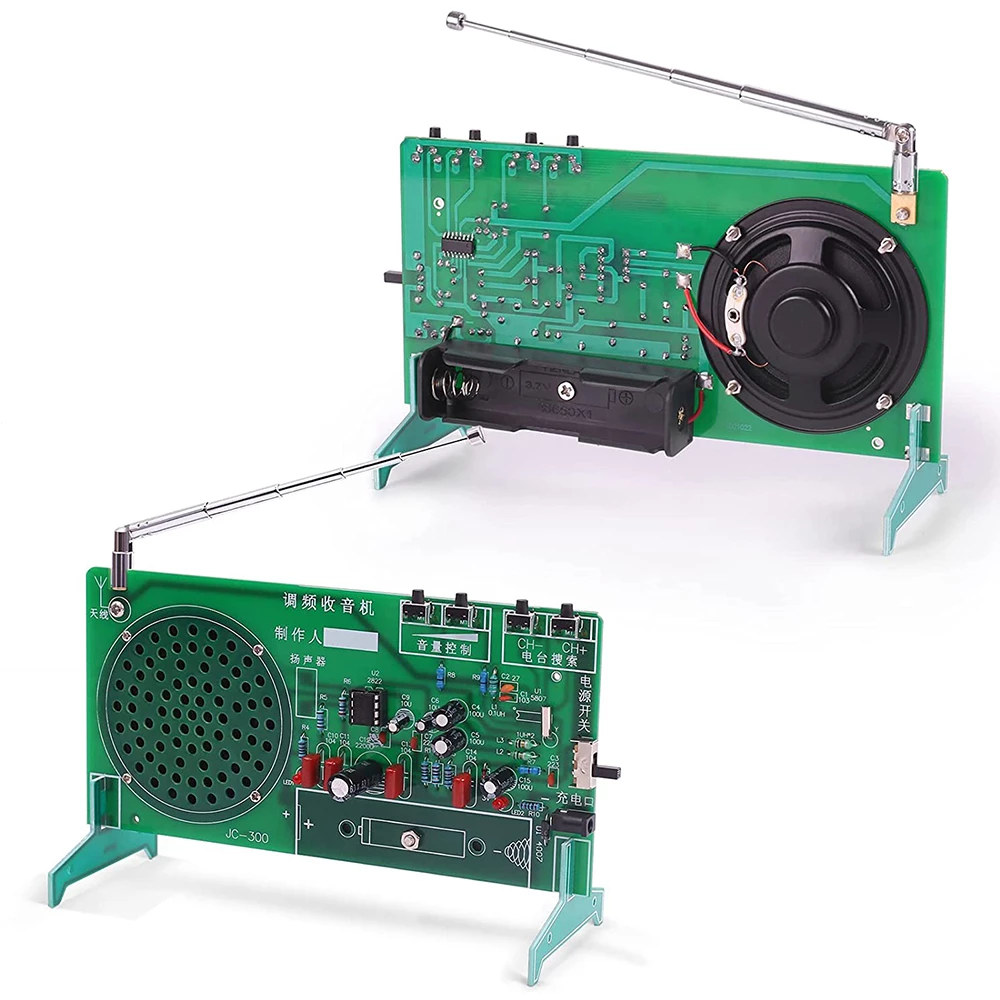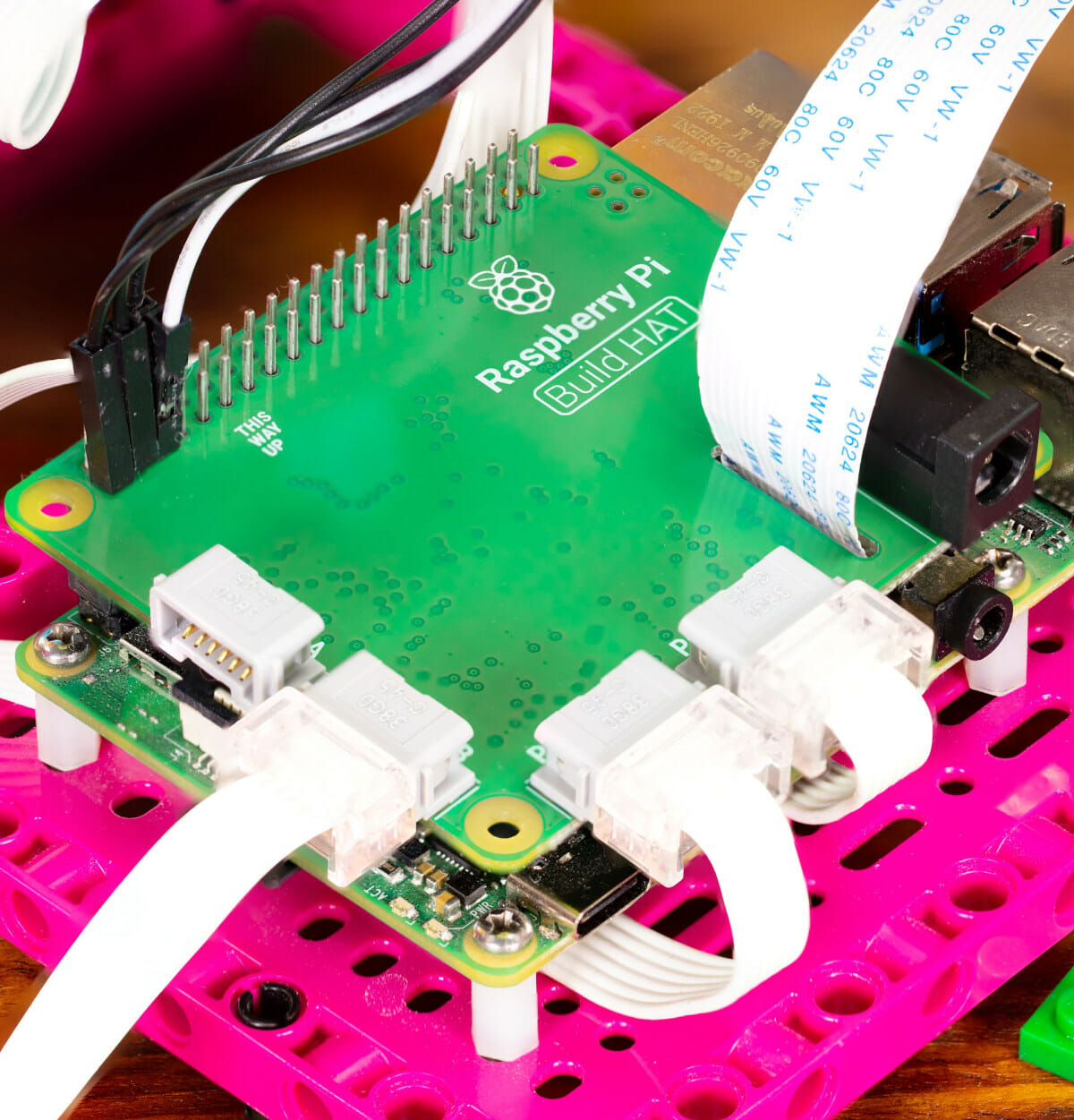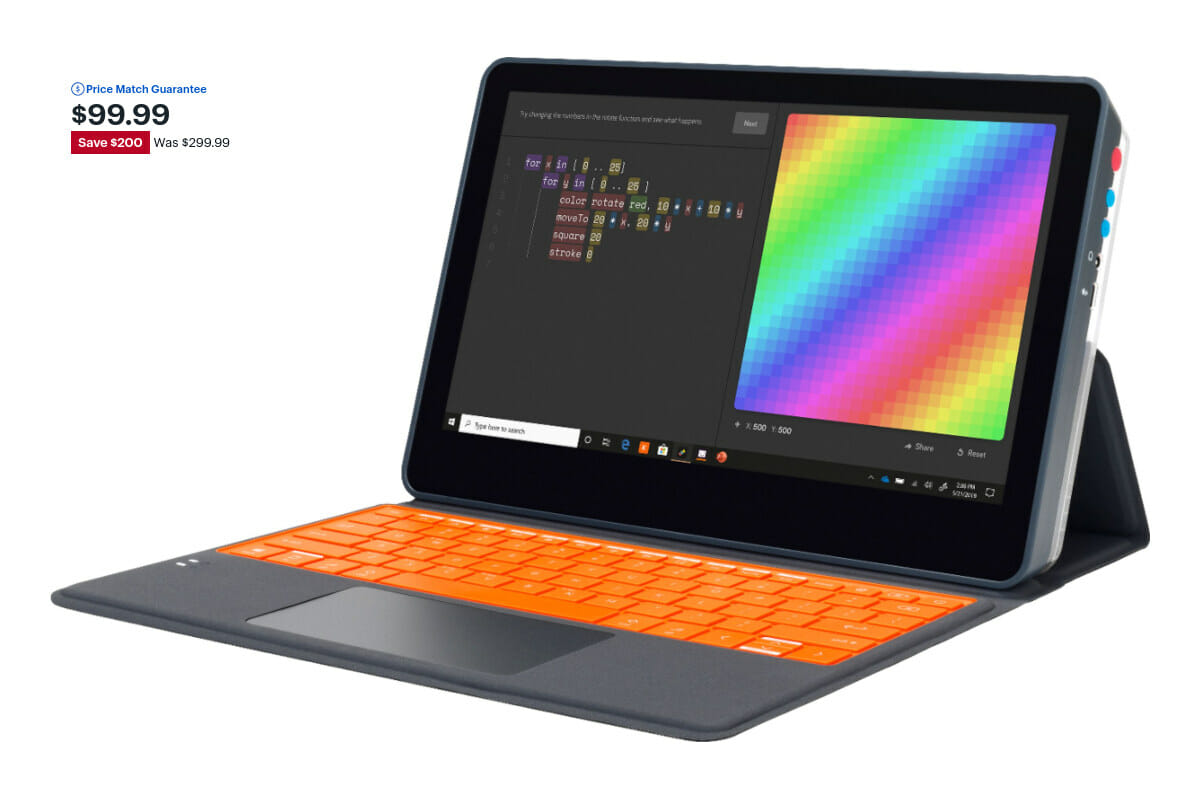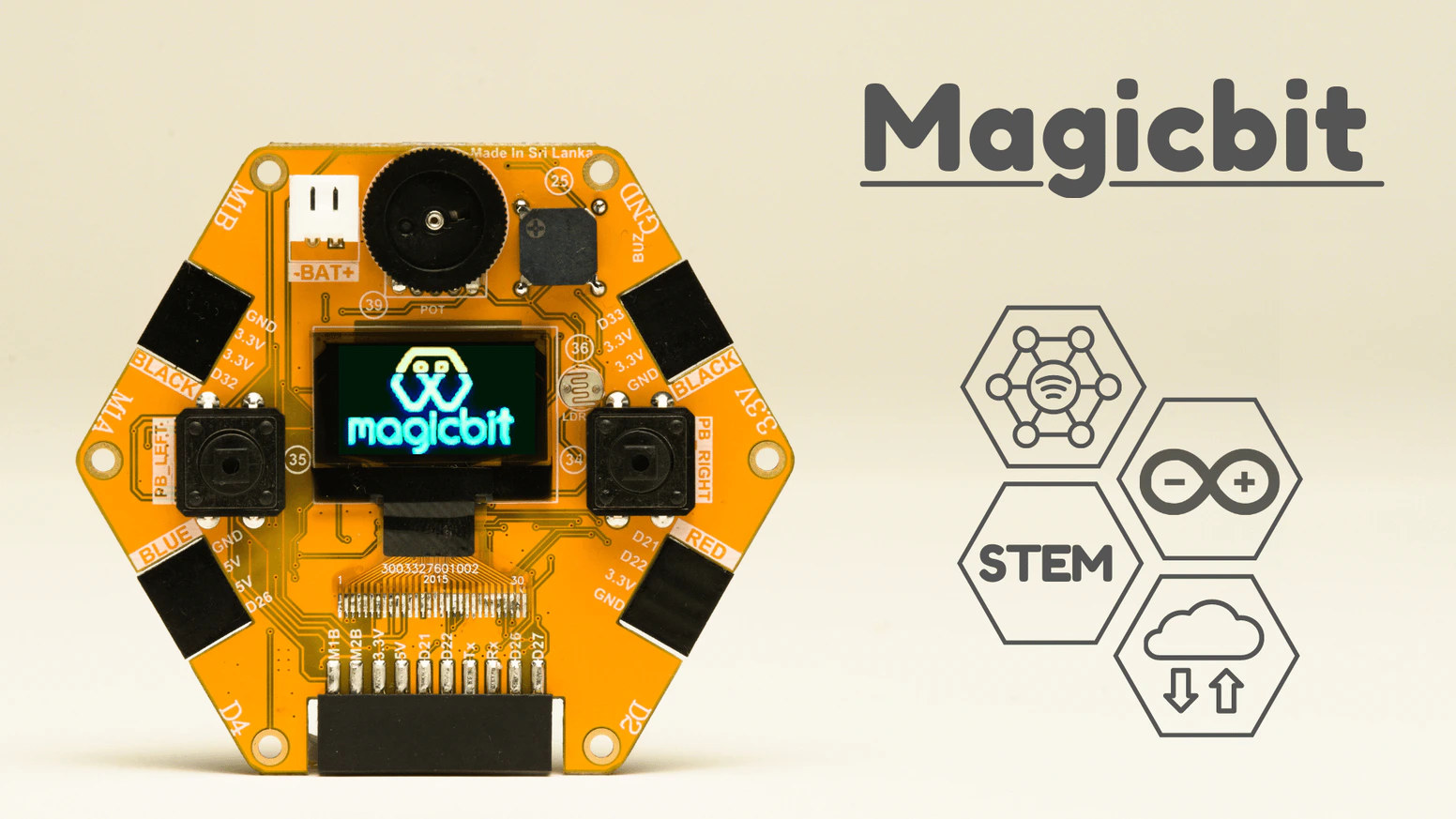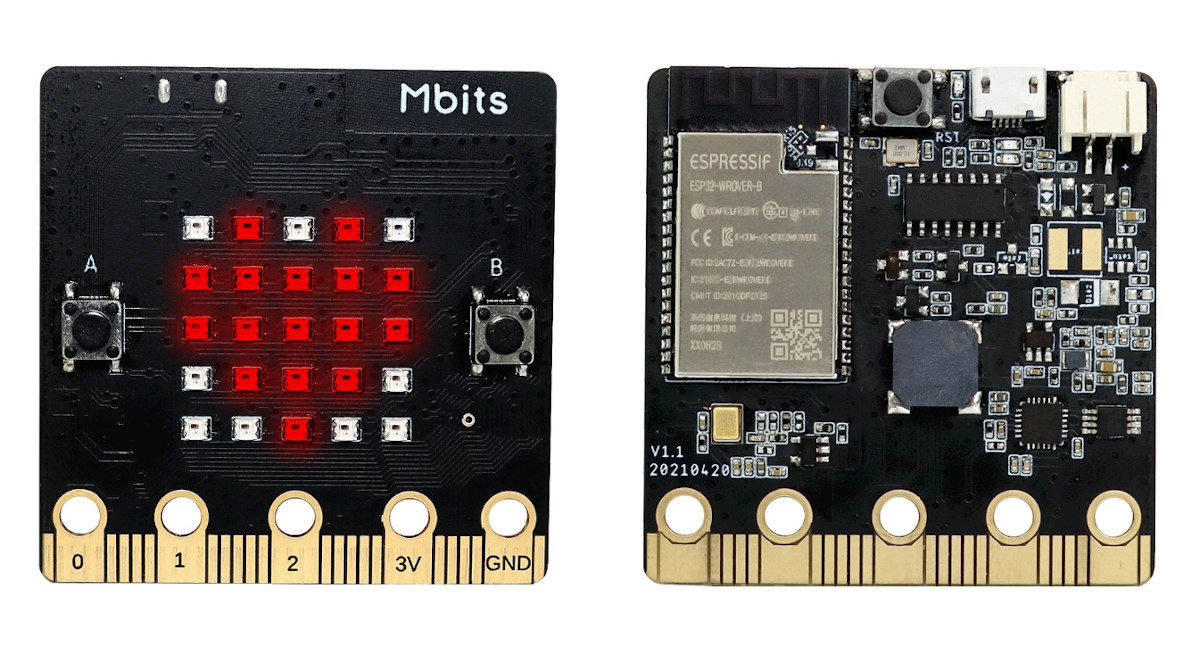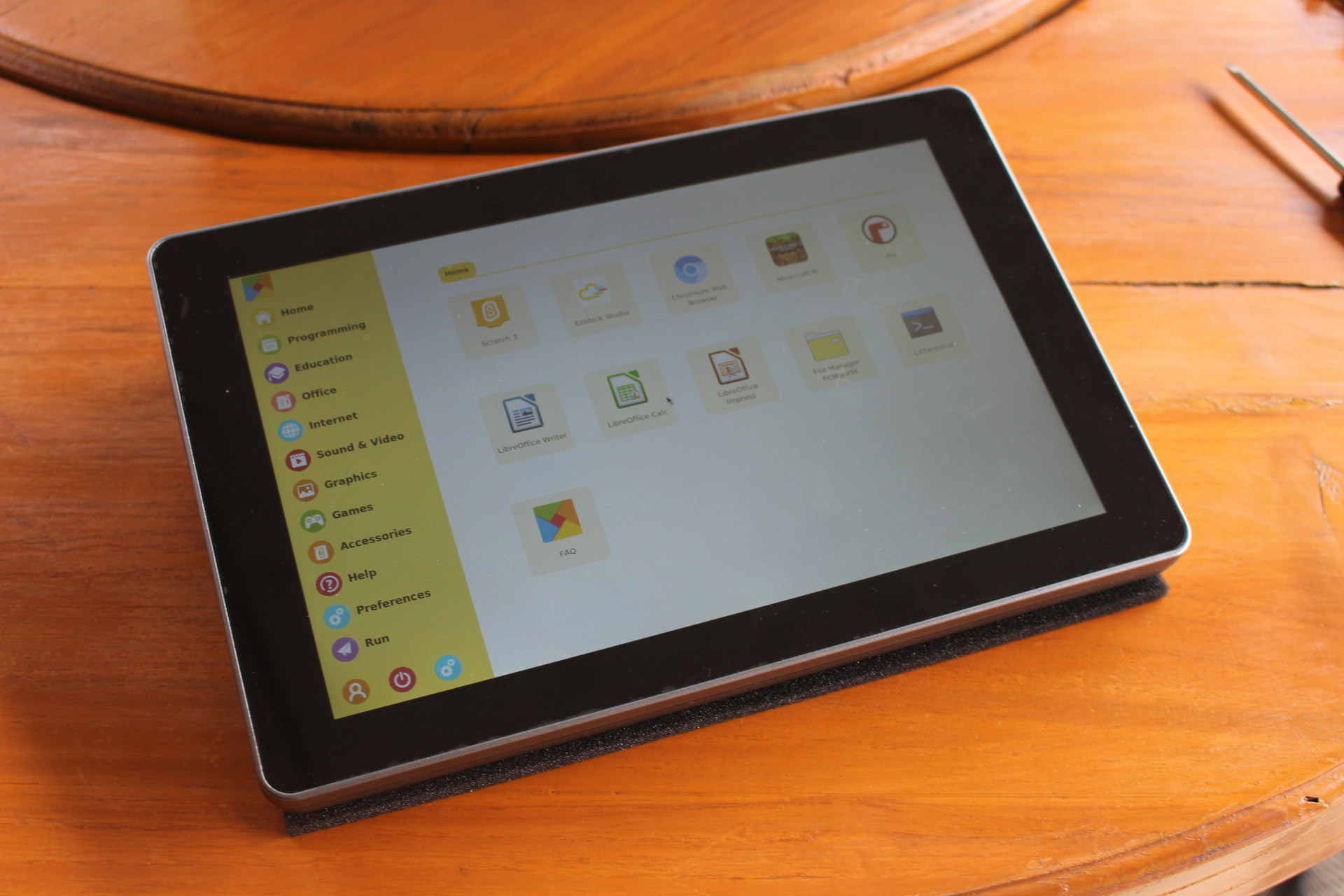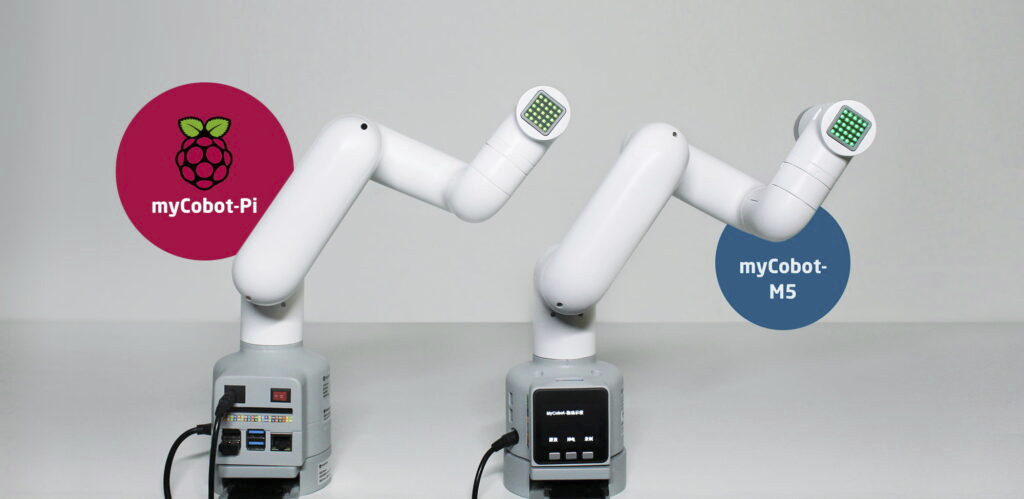Wappsto:bit GO is an ESP32 board compatible with BBC Micro:bit accessories thanks to a compatible edge connector, but adding WiFi to Bluetooth LE, and offering some extras compared to Elecrow Mbits ESP32-based BBC Micro:bit clone. The new board is notably equipped with a wider range of sensors including a light sensor, a magnetometer, and sound sensor beside the temperature sensor and accelerometer present in the original board, and it also exposes GPIO through a more traditional 2.54-pitch header to facilitate the integration of a wider variety of add-on boards. Wappsto:bit GO specifications: Wireless modules ESP32-WROOM-32E module with ESP32 dual-core microcontroller, 4MB flash, 2.4 GHz WiFi and Bluetooth LE connectivity, built-in PCB antenna Raytac MDBT50Q-512K Bluetooth 5.2 module based on nRF52833 with 512KB Flash MCU – NXP Kinetis KL2 Arm Cortex-M0+ microcontroller (MKL27Z256VFM4 ) with 256KB Flash (for USB port handling) Display – 25 LED matrix Sensors Temperature sensor, Light sensor […]
Build a DIY FM Radio with this $12 kit
I’ve not used an FM radio for years, but if you’d like to teach younger generations about older technology and show them how to solder components there’s an RDA5807 based kit that would allow you to build DIY FM Radio operating in the 87 MHz to 108 MHz range. The JC-300 kit comes with a bare PCB, and all components required including a speaker, an antenna, and a holder for a 18650 battery. Some of the main components of the kit include: RDK Microelectronics RDA5807 single-chip broadcast FM radio tuner operating in the 87MHz -108MHz frequency range DA2822 Power Amplifier 66mm speaker 75 Ohm FM antenna 18650 battery holder Feet/brackets to hold the PCB vertically The system also comes with four buttons to adjust the volume and switch FM stations, plus a power switch. Nothing is pre-soldered on the bare PCB at all, so everything will have to be soldered […]
LEGO Technic meets Raspberry Pi with the Build HAT
A new official Raspberry Pi expansion board is introduced today. The Built HAT provides four connectors for LEGO Technic motors and sensors from the SPIKE Portfolio, as well as an 8V DC jack to power both the Raspberry Pi and LEGO motors, sensors, LED matrix, and more. Designed in collaboration with LEGO Education, the Build HAT features the Raspberry Pi RP2040 dual-core ARM Cortex M0+ MCU for I/O control, and will enable more complex models benefiting from more powerful Broadcom BCM2xxx processors, as well as a Python library for easy programming. Build HAT key features and specifications: MCU – Raspberry Pi RP2040 microcontroller for low-level control of LEGO Technic devices 4x LPF2 connectors for LEGO Technic motors and sensors included in the SPIKE Portfolio 40-pin GPIO header for connection to Raspberry Pi 4 Model B, 3B+, 3B, 3A+, or Pi Zero family (Raspberry Pi 400 not supported) Misc – 2x […]
Kano PC 11.6-inch Windows 10 Laptop for kids sold for $99.99 (Promo)
Kano PC is a laptop designed for kids with an 11.6-inch touchscreen display, a Celeron N4000 dual-core Gemini Lake processor coupled with 4GB RAM, and 64GB eMMC flash, and running Windows 10. Nothing really special here, except for the price. Kano PC would normally sell for $299.99, but BestBuy offers it for just $99.99, which makes it an incredible deal, at least if you are based in the US, or you purchase through a forwarder. Let’s see what you could get for just under $100 with Kano PC specifications: SoC – Intel Celeron N4000 dual-core Gemini Lake processor @ 1.10 GHz with Intel UHD graphics; 6W TDP System Memory – 4GB DDR3L RAM Storage – 64GB eMMC flash, MicroSD slot Display – 11.6″ touchscreen display with 1366 x 768 resolution Audio – 3.5mm headphone jack, 3.5mm speaker level jack, 1x microphone Video – 1x HDMI port Connectivity – Dual-band Wi-Fi […]
Magicbit is a wire-free, modular STEM education platform (Crowdfunding)
Magicbit board joins other ESP32 platforms for the STEM education market such as the Crowbits Master Kit or ESP32-based Micro:bit clones with visual programming and Arduino and/or MicroPython support, a mobile app, and training materials such as project tutorials and online courses. Magicbit is designed to be wire-free with the hexagonal board offering four module’s connectors, an OLED display, buttons, a buzzer, and more. You can still use cables if you’d like with six crocodile clip holes and an expansion connector. Magicbit hardware specifications: Wireless module based on ESP32 dual-core processor @ 240 MHz with 520kB RAM and 2.4 GHz WiFi & Bluetooth 4.2/5.x LE connectivity, plus 4MB flash storage Display – OLED display Audio – Buzzer USB – 1x Micro USB port for power and programming Expansion 4x module expansions Motor driver Misc – Reset button, 2x user buttons, potentiometer, light sensor, LEDs Power Supply – 5V via MicroUSB […]
An ESP32-based BBC Micro:bit clone – Meet Mbits
A few years ago, we noted a BBC Micro:bit clone based on ESP32 WiSoC with Banana Pi ‘s BPI:bit board with an array of 25 RGB LEDs and WiFi & Bluetooth LE connectivity. There’s now another such clone with Elecrow Mbits designed in a way that resembles the BBC Micro:bit v2 board, but replacing the Nordic Semi nRF52833 2.4GHz/BLE SoC with the ESP32 dual-core wireless chip with support for both WiFi and BLE. The specifications between Elecrow Mbits and BBC Micro:bit v2 are close enough, although ESP32 is a more powerful processor, and the MBits board comes with more memory and storage. Power consumption of the BBC Micro:bit v2 should be much better, so if anything needs to run on battery for an extended period of time, it may be a better choice, or you’re gonna need a bigger battery. The GPIO pinout looks different too, so not all Micro:bit […]
RasPad 3 Review – Part 1: Raspberry Pi 4 “tablet” specs, unboxing and assembly
RasPad tablet kit for Raspberry Pi 3B+ and other SBC’s was introduced in 2018, but Sunfounder has recently introduced an update, RasPad 3 that supports the more powerful Raspberry Pi 4 SBC. After seeing my review of CrowPi2 Raspberry Pi 4 education laptop, the company asked me whether I’d be interested in reviewing Raspad 3 as well. So here we are, and I’ve received a sample of the tablet kit. As usual, I’ll do a two-part review, with unboxing and assembly of the kit. Since I previously missed the RasPad 3 announcement, I’ll start by listing some of the specifications. RasPad 3 specifications Compatible board – Raspberry Pi 4B with Broadcom BCM2711 quad-core Cortex-A72 processor, up to 8G RAM Storage – MicroSD card socket Display – 10.1-inch touchscreen IPS display with 1280×800 resolution, 10-point touch Video Output – Full-size HDMI output Audio – 3.5 mm headphone jack, stereo speaker Connectivity […]
MyCobot robotic arm is offered with Raspberry Pi 4 or M5Stack ESP32 modules
Elephant Robotics’ MyCobot robotic arm was introduced last year with M5Stack Atom & Basic ESP32 modules with 6-degrees of freedom, a 250 grams max payload, available now for $599. The company has launched a new $699 version – MyCobot-Pi – with most of the same features, except for an upgrade to Raspberry Pi 4B which offers more performance and flexibility. Both versions of MyCobot arm robotic arm support accessories such as a gripper and a suction pump attachable through a LEGO connector, but while the original version – MyCobot-M5 – relies on Arduino programming, the new MyCobot-Pi runs Debian/Ubuntu and ROS operating systems with image recognition algorithms that can work with a variety of cameras. Since we’ve missed last year’s announcement, we’ll cover both models in this article. MyCobot Robotic Arm Despite the mechanical parts being the same, the specifications for MyCobot-M5 and MyCobot-Pi differ quite a lot: Controller MyCobot-M5 […]


